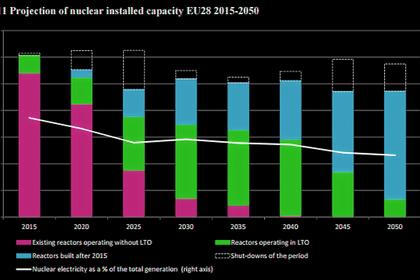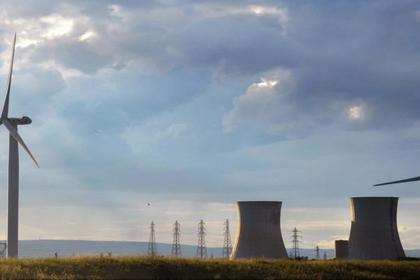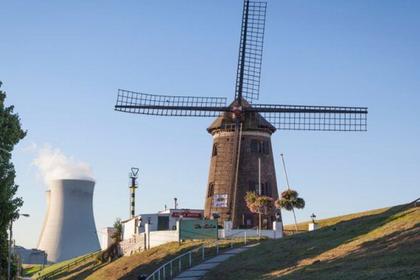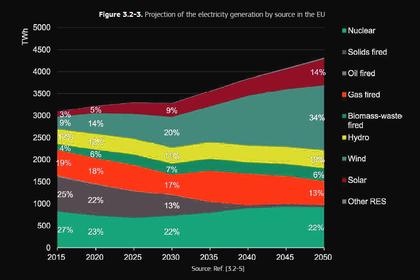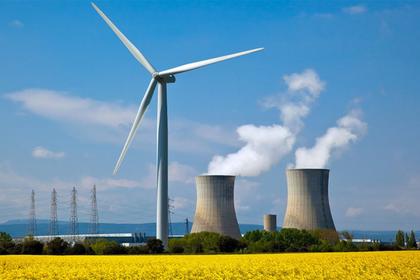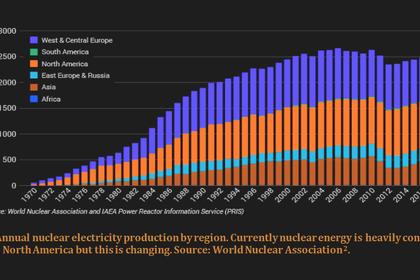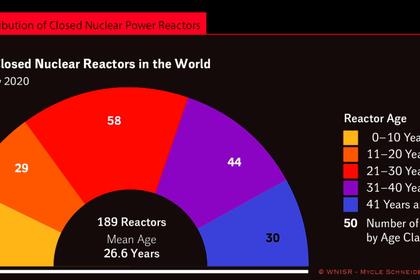
NUCLEAR FOR ENVIRONMENT
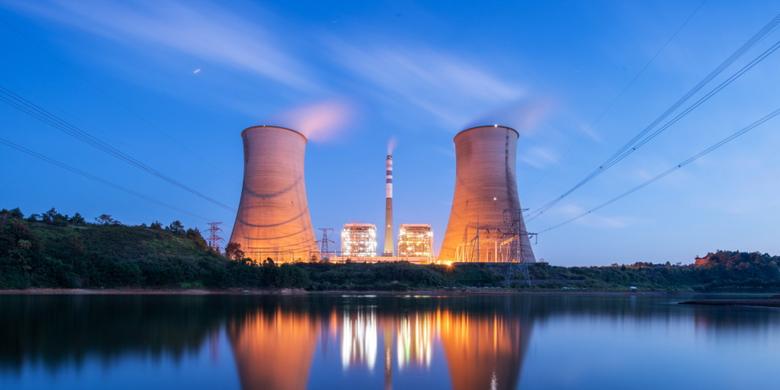
WNN - 30 April 2021 - Caring about the environment has traditionally focused on the scarcity of natural resources, but with nuclear power a healthier world can also mean abundance for all, environmentalist Ben Heard said today at the Atoms for Humanity discussion on Why Humanity Needs Nuclear produced by Russia's Rosatom. Heard is an advocate for nuclear power in his native Australia, through his directorship of environmental NGO Bright New World.
The discussion centred on the social, environmental and global partnerships aspects of the United Nation's Sustainable Development Goals (SDGs). It was moderated by Kirsty Gogan, managing partner at LucidCatalyst and a co-founder of TerraPraxis.
Asked about SDGs 13, 14 and 15, which concern, respectively, climate change, life under water and life on land, Heard first described how his own environmentalism had changed once he came to understand the benefits of nuclear energy.
"It was 10 years ago this year that I first spoke up publicly to say that I had changed my mind on this particular issue; an issue that had felt really consequential to my identity as someone who really cared about the environment," he said.
This change required personal reflection and a consideration of the professional exposure it would entail.
"It turned out to be a really positive experience in a lot of ways. It brought me into contact with a whole new world and a great many new people who were starting to think in these ways as well. Even better than that, it really opened up my thinking and my ideas to realise that, if we can take the energy challenge and meet it with something that we can really scale up, then we can also tackle so many of these other sustainability and conservation challenges in really intelligent and exciting ways to make a better world.
"It was really transformational in my thinking - how to preserve the environment, how to care for the world around us - that has been very challenging, very difficult, sometimes confrontational, but ultimately very rewarding. And I'm glad to see and sense that there's a real change now in thinking that's becoming much more widespread and that gives me real hope for what's going to happen next."
Three decades ago, the main environmental concerns, he said, were deforestation, acid rain and air pollution.
"Climate change came a little later and became something very all-encompassing, and it is. It is already impacting biomes all over the planet and it's going to impact the chemistry of our oceans," he said. "I'm struck by the fact that it was climate change that got me interested in nuclear technologies."
The word 'clean' applies to nuclear energy in a 'holistic' way, he said. For example, the absence of air pollution and what that means for the health of people, settlements and ecosystems. Another important benefit of nuclear energy, in contrast to some other clean energy technologies, concerns land use.
"The last thing I want to see us doing is liquidating scarce natural landscapes in the name of tackling climate change. It seems to be in tension with the values that we're trying to address. The beauty of nuclear technology is that it takes that tension out of the picture. We can have that energy at scale, and the clean air and the clean water, and preserve our landscapes, and actually help to begin restoring them, which is for me extremely powerful."
He described the role of nuclear energy in clean energy systems as "where really beautiful synergies start to happen".
"Most of the ideas and the technologies and the processes that we have for building a cleaner, better and more efficient world around us, are fantastic ideas but, ultimately, nearly all of them need to be energised in some way. And for so long as that energy was going to be drawn principally from fossil fuels, there's a tension there because we're managing and improving the environment on one hand, and making it worse on the other," he said.
For example, recycling and "closing the loops" of materials, such as plastics, metals and wood, are energy consuming processes. "If we can make clean energy cheap, then we can go for deeper recycling." Similarly with mining: "If we can make clean energy cheap, then we can extract more material from the same body of ore." He added: "There's lot of resource that's out there currently as waste, but with additional clean energy at a great price and at big scale, we can energise that process more and shrink that impact."
The "paradigm" of environmentalism focused on scarcity.
"There was a whole vision of 'not enough', and what nuclear has taught me is that in one crucial element we can have as much as we need and that's clean energy. And the power of that is huge because with clean energy we can do so much more work to preserve the things that are really scarce, like land, like intact forests and ecosystems.
"So, with more intensive agriculture that is energised, we can produce more food for less land, we can actually return land to nature and we can actually start thinking in terms of a restorative relationship with the world around us, moving from an exploitative relationship. We won’t be able to do that without really large-scale clean energy and, to get there, wind and solar alone isn’t going to give us that freedom and that power. When nuclear technology is in the picture, then it's within our grasp."
-----
Earlier:
